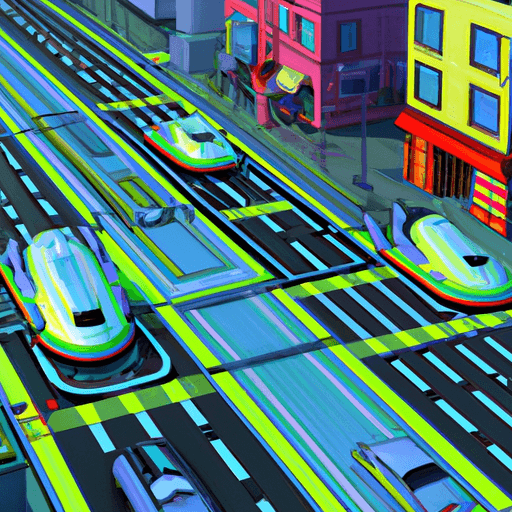Examining How the Increased Adoption of Autonomous Vehicles Will Influence Society in the Coming Years
Recent technological advances have made the possibility of autonomous vehicles a reality, and the implications for society are far-reaching. Autonomous vehicles could potentially revolutionize the way we travel and interact with our environment, and the way people interact with each other. However, as the adoption of autonomous vehicles increases, it is important to consider the potential benefits and risks associated with self-driving cars. In this article, we will explore how the legal and ethical implications of autonomous vehicles may shape public opinion about the technology, and how the shift to self-driving cars may influence how people interact with their environment and with each other.
The Benefits of Autonomous Vehicles
One of the potential benefits of autonomous vehicles is a decrease in the number of traffic accidents. Autonomous vehicles are able to detect and respond to their environment faster than humans, and the technology is able to make decisions that take into account factors such as weather, traffic, and other vehicles on the road. This could potentially reduce the number of accidents caused by human error, and lead to a decrease in the number of injuries and fatalities resulting from car crashes. Additionally, the increased efficiency of autonomous vehicles could also reduce traffic congestion, leading to less time wasted in traffic jams.
The Risks of Autonomous Vehicles
Despite the potential benefits of autonomous vehicles, there are also risks associated with the technology. One of the main concerns is the potential for job loss in the transportation industry. As autonomous vehicles become more prevalent, there is a risk that human drivers will no longer be needed, leading to job losses in the industry. Additionally, there are also legal and ethical concerns associated with autonomous vehicles. For example, it is not yet clear how liability would be determined in the event of an accident involving an autonomous vehicle, or how the technology should be programmed to make decisions in ethical dilemmas such as when a car must decide between two courses of action, both of which could cause harm.
The Impact on Public Opinion and Implementation
The legal and ethical implications of autonomous vehicles will likely shape public opinion about the technology, and affect its overall implementation. For example, if the public perceives that autonomous vehicles are not safe or are not ethically sound, this could lead to a decrease in adoption of the technology. Additionally, the shift towards self-driving cars could also influence how people interact with their environment and with each other. Autonomous vehicles could potentially lead to a decrease in car ownership, as people may no longer need to own their own car in order to get around. This could lead to an increase in public transportation use, as well as an increase in ride-sharing services.
Conclusion
The increased adoption of autonomous vehicles is likely to have a profound impact on society in the coming years. The potential benefits of autonomous vehicles, such as a decrease in the number of traffic accidents and an increase in efficiency, could be great. However, there are also potential risks associated with the technology, such as job loss in the transportation industry and legal and ethical concerns. Ultimately, the legal and ethical implications of autonomous vehicles will likely shape public opinion about the technology and have a significant impact on its implementation.

















Comments
Leave a Comment